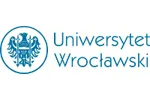

Poland
University of Wroclaw| The award | How you will study | Study duration | Course start | Domestic course fees | International course fees |
|---|---|---|---|---|---|
| Master Degree | Full-time | 2 years | October | EUR 2000 per year | EUR 3200 per year |
Linguistic proficiency is a key factor for smart as well as inclusive growth of the economy within Europe as specified in the Europe 2020 strategy and the Education and Training strategic framework 2020. With this in mind, we have designed an innovative and high-quality MA programme in linguistics. The programme is unrivalled in its combination of theoretical and empirical linguistics, which will provide students with cutting-edge skills and competences and enhance their career options in the world of education and training as well as in the world of work. Specifically, the proposed programme provides a thorough exposure to theoretical as well as empirical linguistics. Students will gain in-depth knowledge of linguistic theories for all levels of language, and will learn how to apply them to analyse new sets of linguistic data. They will also be instructed on how to perform empirical studies to test linguistic hypotheses, both in terms of experiments and corpus studies. Great emphasis will be put on the way in which the two research fields can mutually benefit from each other. Students will not only know linguistic theories for their own sake, they will learn how to derive from them empirical research questions that can be validated experimentally. At the same time, empirical approaches to linguistics will always be grounded in theoretical work to suggest potential topics for experiments and for the discussion and interpretation of empirically derived results.
The resulting study programme can be summarised as follows. The programme consists of courses for a total of 90 ECTS credit points plus a Master's thesis of 30 ECTS credit points. Courses are distributed over the first three (3) semesters, while most of the work on the Masters thesis is completed in the fourth (4th) semester. This results in a 2-year programme of 120 ECTS credit points.
The programme is highly modular: it consists of core and specialized modules. Core modules aim at establishing a firm and uniform foundation for all students attending the programme, independently of their previous background. These modules are compulsory and cover a set of core topics in Linguistics. Specialised modules, on the other hand, may be subject to change. This flexibility is crucial, since the programme needs to respond successfully and effectively to the fast pace of evolution that characterises the study of language, and also wants to maintain its ability to react and adapt quickly to changes on the job market for our graduates.
The resulting programme is both student-centred and output-oriented, for it can be adapted to the needs of each student while scientific excellence is always ensured, and it allows for a clear evaluation of the results achieved by the student at each step of their education. Modularity, and the strict regularity imposed in the programme, furthermore ensures that student workload is balanced. ECTS credit points have been carefully assigned to the different courses within each module, taking into account the number of theoretical and practical (study) hours each one requires. A study plan consists of 60 ECTS credit points per year, with a first year dedicated to 50% to the study of foundations of Linguistics, and a research specialisation in the second year of studies.
Studying in multi-national and most importantly multilingual groups chosen from different universities in Europe and outside Europe, with English as the instruction language, accompanied by language classes in another European language, contributes in the best possible way to preparing students for the increasing globalisation of science, industry, and commerce.
Details:
1. A Bachelor degree or equivalent in one of the following areas:
a) Linguistics/Theoretical Linguistics/Computational Linguistics/Psycholinguistics
b) English or related studies (however with a specialization/Bachelor thesis or Bachelor exam in Linguistics)
c) Psychology
d) Mathematics/Computer Science
2. The diploma degree cannot be lower than A/B+ (“very good”, “plus good”)
3. Proficiency in English (for non-native speakers) (level C1+)
4. A letter of intent written in English The applicants should write at most two pages (A4, Times New Roman, 12pt, single space), focusing on: a) their reasons for choosing this programme, b) their areas of interest in Linguistics, and c) the reasons for choosing the University of Wrocław.
5. A current Curriculum Vitae, written in English
Below are some suggested courses at other providers that you may also be interested in:
Fashion Marketing and Communication - Academic Year University Degree
IED – Istituto Europeo di Design
Find out moreSummer Immersion: New York City Summer School
Columbia University, School of Professional Studies
Find out moreMixing & Mastering Electronic Music – Short Course Summer School
Catalyst - Institute for Creative Arts and Technology
Find out moreIf you do not meet the entry requirements for this course then consider one of these postgraduate preparation courses from another institution:
Graduate Diploma of Engineering (Industrial Automation)
Engineering Institute of Technology
Find out moreGraduate Diploma in Law/Common Professional Examination GDL/CPE
Northumbria University Newcastle
Find out moreThere are 28 other courses listed from University of Wroclaw. A selection of these are displayed below:
Bachelor of Business and Administration, Business Bachelor Degree
University of Wroclaw
Find out moreBachelor of Business and Administration, Finance Bachelor Degree
University of Wroclaw
Find out moreBachelor of Business and Administration, Governance Bachelor Degree
University of Wroclaw
Find out more